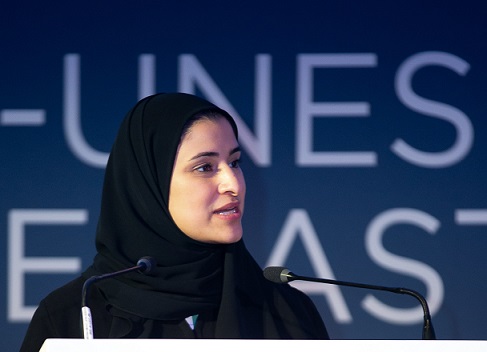 Six scientists win recognition for their pioneering research in scientific development in the region
Six scientists win recognition for their pioneering research in scientific development in the region
The 6th edition of the L’Oréal-UNESCO for Women in Science Middle East Fellowship has recognized six leading women scientists who have made extraordinary discoveries in their fields in 2019. This initiative is part of the global L’Oréal–UNESCO for Women in Science program that has recognized over 3,200 outstanding researchers in its 21-year history, three of whom have gone on to win the Nobel Prizes.
This year, the program has received the endorsement of H.E. Sarah bint Yousef Al Amiri, Minister of State of Advanced Sciences, and is being held in partnership with Khalifa University of Science and Technology. An awards ceremony to honour the recipients took place at W Hotel in Dubai on November 11th where Dr. Maryam AlYammahi (UAE), Dr. Fatma Al Ma’Mari (Oman), Dr. Wafa Audah Altalhi (Saudi Arabia) and Dr. Nour Alsabeeh (Kuwait) each received EUR 20,000 in the Postdoctorate Researchers category. Wafaa Ramadan (UAE) and Asma Al-Amoodi (Saudi Arabia) each received EUR 8,000 in the PHD Students category, in recognition of their contribution to science and their aspiring research work.
Remi Chadapaux – L’Oréal Middle East Managing Director, said: “Now in our sixth year, we are honoured to recognize an outstanding group of women who have left no stone unturned in their quest for knowledge and scientific application. The L’Oréal-UNESCO For Women in Science Middle East program was established to recognize, promote and encourage exceptional women scientists, and today it has become one of the most highly regarded initiatives in the region. The scientific research and commitment of these women to improve the lives of people is unmatched and deserves the highest levels of support and acknowledgment within our communities.”
The L’Oréal-UNESCO For Women in Science Middle East Program is based on the belief that the world needs science, and science needs women, because women in science have the power to change the world.
The MENA region has witnessed a rapid growth of Arab women taking on roles in STEM fields, with a number of initiatives across schools, universities and communities. According to UNESCO, 34-57 percent of STEM grads in Arab countries are women, which is significantly higher than in universities in the US or Europe. L’Oréal has been one of the first companies to create a globally recognized initiative to support and encourage female STEM graduates on such a large scale.


